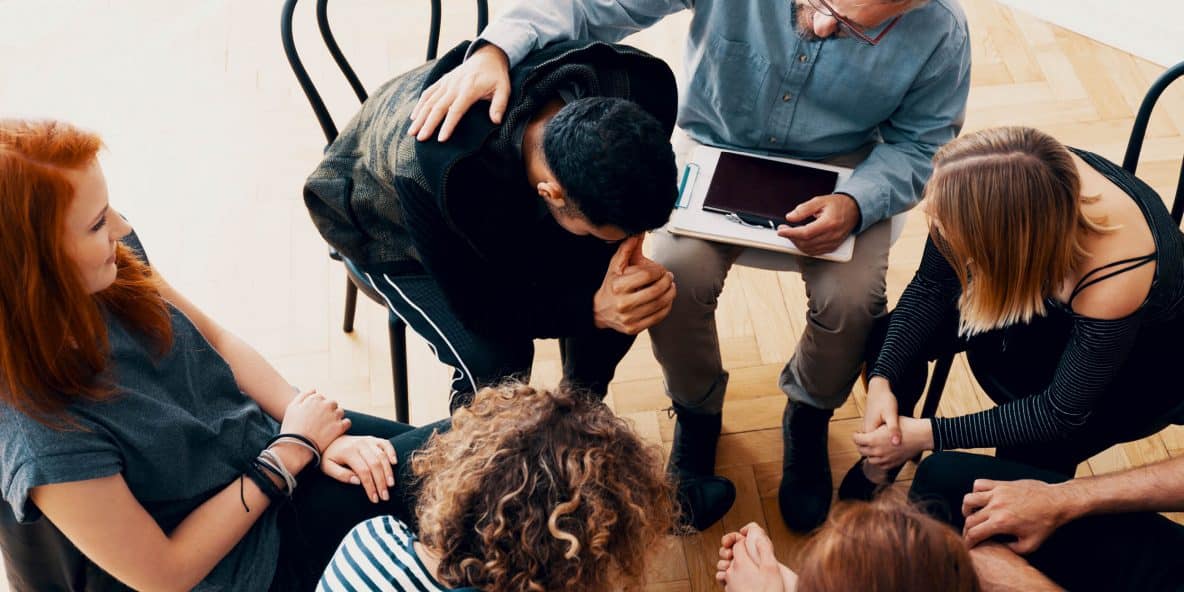Living with a mental illness or addiction can be a constant struggle. From managing symptoms to avoiding relapse moments and building a fulfilling personal life, these struggles can often become hard to manage. Although it may feel like an endless cycle of struggling, long-term recovery is possible with the help of an intensive outpatient program Georgia. Maybe your situation is a recommendation for a high level of care, but your obligations inhibit you from committing to inpatient treatment. Or perhaps you just finished an inpatient program and required support beyond traditional outpatient services. If so, then entering an intensive outpatient program may be the next best step to taking control of a mental illness.
At AACS Atlanta, our goal is to provide the best rehabilitation services possible in a way that fits directly into your schedule because your addiction should never put a stop to you living your life. Our intensive outpatient program Decatur allows for more freedom than other inpatient programs while providing more structure and criteria than most outpatient programs. Our patients can work towards recovery while still attending work, going to school, and taking care of necessary obligations.
Q: What do I get out of Intensive Outpatient Programs
Intensive outpatient drug rehabilitation is generally considered a transitional program designed to help bridge the gap between total inpatient care and return to an independent life. This type of treatment program provides interim support. It offers many of the same benefits as inpatient programs, but the noticeable difference is how viable and flexible these programs are to patients. Intensive outpatient Program Georgia (IOPs) offer clients flexible hours that typically include day and night treatment sessions. Clients usually meet 3-4 times a week, and each client’s treatment plan is tailored to their individual needs. Most programs include a combination of one-on-one counseling, group therapy, and training sessions.
During therapy, the client studies various elements of well-being. They learn to develop strategies to strengthen coping skills, manage cravings/addiction effectively, and reduce stress. Intensive outpatient care also helps clients investigate underlying problems that may lead to substance abuse. Since all patients in an intensive outpatient program Georgia receive an individualized treatment plan, clients can work personally with counselors to figure out what those underlying problems could be. People who have tried to combat addiction issues on their own but still need help should consider intensive outpatient rehabilitation as a recovery option.
● Group therapy: The basis of most intensive outpatient program Atlanta is group counseling. These groups provide a supportive environment to encourage problem-solving, strengthen interpersonal relationships, and develop empathy. Group therapy allows clients to practice communication skills and engage in socialization activities; this is especially beneficial for those whose socializing was centered on the use of drugs or alcohol.
● Individual counseling sessions: Meeting with psychologists and counselors one-on-one is a great way to prevent relapse and help identify triggers and develop coping mechanisms. Individual therapy sessions lasting 30 to 50 minutes are frequently scheduled as part of IOP programs and occur at least weekly during the initial treatment period. A primary counselor is appointed to each client to form a close therapeutic partnership. A counselor may question the client’s reactions to the most recent group meeting, how the client spent their time since the last session, how the client is feeling, drug and alcohol use (if any), and whether there are any severe life changes or issues.
● Education: Training and instruction is given on everything from learning basic cognitive and life skills to understanding the importance of health and personal hygiene, to perfecting relaxation techniques and managing emotions
Q: Is an evaluation required?
Yes, an assessment is required for admission into our Intensive Outpatient Program Decatur. An IOP treatment plan can only be tailored to the individual by a counselor. Your individualized treatment plan will be determined by a clinical evaluation completed by a licensed evaluator and includes an interview, questionnaires, medical histories, psycho-social assessment, urine and breath analysis, and more. The more detail that can be provided to the evaluator regarding an individual’s current state of being, the better a treatment plan will be.
Q: What topics are discussed in an Intensive Outpatient Program
Many different areas and topics are covered in intensive outpatient programs, including :
● Post-Acute Withdrawal Syndrome Or PAWS
● Relapse Prevention Skills
● How to Manage Urges and Cravings
● Understanding the Brain Chemistry of Addiction
● Progression of the Disease of Addiction
● Introduction To the Twelve Steps
● Spirituality
● Stages of Change
● Focus On Co-Occurring Disorders and the Effects On Addiction and Recovery
● the Family Education Program
Q: What happens after an Intensive Outpatient Program
Clients must maintain contact with recovery resources once they have completed an intensive outpatient program georgia. After completing an IOP, individuals can either continue their therapy in a conventional outpatient program or enroll in an aftercare program. Clients who continue to participate in individual, group, and family treatment, 12-step or other support groups, and work to build coping skills, relapse prevention tactics, and healthy living practices have the best chance of long-term recovery.












